![Guy, Barry : Blue Horizon. Barry Guy@70 (Live At The Ad Libitum Festival 2017) [3 CDs] (Listen! Foundation (Fundacja Sluchaj!)) Guy, Barry : Blue Horizon. Barry Guy@70 (Live At The Ad Libitum Festival 2017) [3 CDs] (Listen! Foundation (Fundacja Sluchaj!))](https://www.teuthida.com/productImages/misc4/27480.jpg)
Three astonishing concerts on 3 consecutive nights at the Ad Libitum Festival 2017 in Warsaw, Poland from British bassist Barry Guy in 3 configurations: 1st in a duo with Spanish pianist Agusti Fernandez; 2nd in a trio with US pianist Marilyn Crispell and British drummer Paul Lytton; and 3rd in a double bass duo with French bassist Joelle Leandre.
Out of Stock
Quantity in Basket: None
Log In to use our Wish List
Shipping Weight: 8.00 units
Sample The Album:
Barry Guy-double bass
Agusti Fernandez-piano
Marilyn Crispell-piano
Paul Lytton-drums
Joelle Leandre-double bass
Click an artist name above to see in-stock items for that artist.
UPC: 5905279364301
Label: Listen! Foundation (Fundacja Sluchaj!)
Catalog ID: FSR 07 | 2018
Squidco Product Code: 27480
Format: 3CDS
Condition: New
Released: 2018
Country: Poland
Packaging: Box Set - 3 CDs
CD 1 recorded live at Centre for Contemporary Art Uyazdowski Castle, Wojciech Krukowski Hall, Warsaw, Poland on October 12th, 2017, by Jakub Sosulski.
CD 2 recorded live at Centre for Contemporary Art Uyazdowski Castle, Wojciech Krukowski Hall, Warsaw, Poland on October 13th, 2017, by Jakub Sosulski.
CD 3 recorded live at Centre for Contemporary Art Uyazdowski Castle, Wojciech Krukowski Hall, Warsaw, Poland on October 14th, 2017, by Jakub Sosulski.
"Although more common in the 21st than in earlier centuries, reaching 70 years of age is still an important milestone. With the biblical timeline attained, the indication of whether a life's contributions are outstanding or ordinary can be assessed. When it comes to outstanding, at 70, British double bassist Barry Guy can look back on nearly 50 years of achievements. His capacity as a player, composer, organizer and above all improviser have been so vast that even the five associates who played with him in a three-day birthday celebration during Warsaw's Ad Libitum Festival in mid-October 2017 only represented the bow tip of the players and ensembles he's worked with over the years.
Appropriately each relates to different facets of the bassist's career. British drummer Paul Lytton, who played on October 13 with Guy and American pianist Marilyn Crispell as the Deep Memory Trio, was part of the intellectual ferment which in the late 1960s created the British variant of Free Music. Plus since 1980, Lytton, Guy and protean British saxophonist Evan Parker have been an internationally travelled working trio. A regular playing partner since the early 1990s, Crispell has not only played with Guy in small groups, but, has taken on some of the solo piano parts in the London Jazz Composers Orchestra (LJCO), the breakthrough Jazz-Improv big band that Guy directed and composed for during its 30 years or so history, and was a founder member of the Barry Guy New Orchestra (BGNO).
Catalan pianist Agustí Fernández, who participated in the eight duets with Guy recorded on October 12, is an associate of more recent vintage. Like Crispell, he and the bassist have interacted in many small band situations and Fernández also played in Guy's subsequent large groups, the BGNO and the Blue Shroud Band. Finally there was the milestone-marking duet that took place October 14 with French double bassist Joëlle Léandre. Incredibly Guy, who had investigated the parameters of the double-double bass meeting going back to the 1980s with Peter Kowald or Barre Phillips, had never recorded with Léandre, who in many ways has done as much for the expansion of the bull fiddle's role in contemporary music - especially for Arco playing - as Guy has. Obviously these concerts could have been extended to highlight Guy's affiliations with horn players, large groups and expertise in Early and Baroque Music, which he often performs with his wife, violinist Maya Homburger. But the reason for these particular configurations was simple, explains Maciej Karłowski, Ad Libitum's project curator. Although Guy and the other musicians have worked in Poland over the years, these performances were all Polish debuts. Crispell in fact hasn't played in the country since 1980.
Guy's first notices came almost a half-century ago as part of pianist Howard Riley's trios. Interestingly enough, though when comparing them to the 2017 Warsaw performances, it's the more moderated duets with Fernández that harken back to the Riley trio's cerebral work, than the selections with Lytton and Crispell, where mercurial toughness is reminiscent of the bassist's work with more percussive pianists like Cecil Taylor. For instance, a Fernández-Guy track such as "The Ancients" with its British ballad evocation could be folksy background sounds until Fernández's two-handed chord pulsing and Guy's string buzzing bring out its swing form. Meanwhile "Uma" is gradually turned on its head from impressionistic air to opaque sound challenge via tremolo keyboard work and yelping string pops. At the same time the two introduce exploratory concepts to what could have been a conventional setting on "Rounds", after which a buoyant finale hatches from the double counterpoint of Guy's sharp string squeaks and Fernández's almost obsessive internal string juddering.
Don't forget as well that while a formalist notated-improvised mixture characterized many of Guy's LCJO experiments, he's never shied away from spikier, in-the-moment improvisations. Early on he had an affiliation with some of John Stevens' Spontaneous Music Ensembles and for years in Iskra 1903 partnered volatile types such as guitarist Derek Bailey and trombonist Paul Rutherford. He continues to challenge himself alongside adroitly unguarded emotionalists like Swedish saxophonist Mats Gustafsson and even younger types.
Crispell, Lytton and Léandre are no tyros of course, but during each night's meeting, the trio or duo exchanges reached those heights of improvisational mind-melding often described as ecstatic. The trio's pacing for instance encompasses a track like "Sleeper" where its nursery-rhyme-like melody, enhanced by Guy's galvanizing fills, soon escalates to jabbing multiphonics from Crispell and hulking rolls from Lytton, smoothed into a semi-romantic keyboard fantasia at the finale. Or, as on " Fallen Angel", the three make their presence felt via a dramatic landscape of whistling stops from the bassist, positioned key patterning from the pianist and cross pluses from the drummer that add up to a contrapuntal challenge and resolution. Although firmly grounded in post-modern creativity, the trio members' familiarity with each others' skills and histories means that in a track like "Return of Ulysses", they can briefly connect with their post-bop roots. Chopping out great slabs of percussive chords and snaking tremolos, Crispell consciously or not evokes the enigmatic Herbie Nichols; Lytton engages in relaxed tap-dancing-like breaks on his drum tops and Guy's sawing bow probes and prods the lines in a staccato manner leading to a breath-holding maelstrom that cascades into staccato dynamics. The creativity was such that the Warsaw audience demanded two encores, one a mixture of solemnly meditative pianism and earnestly squeezed bass string tones, and the other that combined bass string drones, drum thwacks and metronomic keyboard kinetics to the point of no return.
Symbolically and kinetically as well the music world has been waiting for a duo recording from Léandre and Guy and the concert lives up to all expectations. Curiously, over the years, along with her other projects ranging from large ensembles to solos, the French bassist has recorded even more double bass duos than Guy, partnering, among others, Kowald, Phillips and William Parker. More overtly flamboyant and stagey in performance than Guy, no more than eight minutes of shakes and shuffles pass between the two bassists than Léandre is verbally yelping, panting, shouting and gurgling, animating the program with audacity. With her voice modulating through subterranean bellows, alto-pitched mumbles and bel-canto blares, at points Guy is cast in the role of diva accompanist as well as a droll partner. Yet not all the instrumental wizardry is his alone and while they both earn their share of laughs, they never let caricature stand in the way of craft. Fluid, guitar-like runs, propelled with slurred fingering are aggressively showcased by both along with spiccato bow movements that stretch from the instruments' top to bottom extremities. String role players, each can mimic the sound of a viola, a cello, or a koto, while never letting go of the chromatic continuum that keeps the music moving. The final minutes and coda bring emphasis from the harmonized basses that could be attributed to notated or soundtrack sounds in turn. The climax however occurs when darkened tinctures are put aside for the full color spectrum that can be squeezed from nine strings vibrating at the same time. Musically, atonality and animation mix with audacity leading to admiration.
The inspiration, dexterity and craft brought to the Léandre-Guy duos could be interpolated to describe the improvisations on either of the other night's performances. That is what makes this CD a profound example of Guy's art and a top-flight listening experience."-Ken Waxman
Artist Biographies
• Show Bio for Barry Guy "Barry John Guy (born 22 April 1947, in London) is a British composer and double bass player. His range of interests encompasses early music, contemporary composition, jazz and improvisation, and he has worked with a wide variety of orchestras in the UK and Europe. He also taught at Guildhall School of Music. Born in London, Guy came to the fore as an improvising bassist as a member of a trio with pianist Howard Riley and drummer Tony Oxley (Witherden, 1969). He also became an occasional member of John Stevens' ensembles in the 1960s and 1970s, including the Spontaneous Music Ensemble. In the early 1970s, he was a member of the influential free improvisation group Iskra 1903 with Derek Bailey and trombonist Paul Rutherford (a project revived in the late 1970s, with violinist Philipp Wachsmann replacing Bailey). He also formed a long-standing partnership with saxophonist Evan Parker, which led to a trio with drummer Paul Lytton which became one of the best-known and most widely travelled free-improvising groups of the 1980s and 1990s. He was briefly a member of the Michael Nyman Band in the 1980s, performing on the soundtrack of The Draughtsman's Contract. Guy's interests in improvisation and formal composition received their grandest form in the London Jazz Composers Orchestra. Originally formed to perform Guy's composition Ode in 1972 (released as a 2-LP set on Incus and later, in expanded form, as a 2-CD set on Intakt), it became one of the great large-scale European improvising ensembles. Early documentation is spotty - the only other recording from its early years is Stringer (FMP, now available on Intakt paired with the later "Study II") - but beginning in the late 1980s the Swiss label Intakt set out to document the band more thoroughly. The result was a series of ambitious, album-length compositions designed to give all the players in the band maximum opportunity for expression while still preserving a rigorous sense of form: Zurich Concerts, Harmos, Double Trouble (originally written for an encounter with Alexander von Schlippenbach's Globe Unity Orchestra, though the eventual CD was just for the LJCO), Theoria (a concerto for guest pianist Irène Schweizer), Three Pieces, and Double Trouble Two. The group's activities subsided in the mid-1990s, but it was never formally disbanded, and reconvened in 2008 for a one-off concert in Switzerland. In the mid-1990s Guy also created a second, smaller ensemble, the Barry Guy New Orchestra. Guy has also written for other large improvising ensembles, such as the NOW Orchestra and ROVA (the piece Witch Gong Game inspired by images by the visual artist Alan Davie). His current improvising activities include piano trios with Marilyn Crispell and Agusti Fernandez. He has also recorded several albums for ECM, which often focus on the interface between improvisers and electronics, including his work in Evan Parker's Electro-Acoustic Ensemble and his own Ceremony. Guy's session work in the pop field includes playing double bass on the song "Nightporter", from the Japan album Gentlemen Take Polaroids. He is married to the early music violinist Maya Homburger. After spending some years in Ireland, they now live in Switzerland. They run the small label Maya, which releases a variety of records in the genres of free improvisation, baroque music and contemporary composition. Guy's jazz work is characterised by free improvisation, using a range of unusual playing methods: bowed and pizzicato sounds beneath the bass's bridge; plucking the strings above the left hand; beating the strings with percussion instrument mallets; and "preparing" the instrument with sticks and other implements inserted between the strings and fingerboard. His improvisations are often percussive and unpredictable, inhabiting no discernible harmonic territory and pushing into unknown regions. However, they can also be melodious and tender with due regard for harmonic integration with other players, and at times he will even play with a straight jazz swing feel. Similarly, in his concert works, Guy manages to alternate harmonic and rhythmic complexity worthy of 1960s experimentalists such as Penderecki and Stockhausen with joyous, often ecstatic, melody. Works such as "Flagwalk" for string orchestra and "Fallingwater - Concerto for Orchestra" display Guy's compositional skill in handling extended forms and writing for large instrumental groups. Some of his compositions, such as "Witch Gong Game" for ensemble, use graphic notation in conjunction with cue cards to lead performers into playing and improvising material from numbered sections of the score. He is also an architect." ^ Hide Bio for Barry Guy • Show Bio for Agusti Fernandez "Agustí Fernández (Palma de Mallorca, 1954), with a perfectly based career and a well-deserved international reputation, is one of the Spanish musicians of major international projection and a world reference in the field of improvised music. Fernández has worked with famous musicians of the free improvisation scene like Peter Kowald, Derek Bailey, Butch Morris, Evan Parker, Barry Guy, Mats Gustafsson, Joel Ryan and Peter Evans a.m.o. He is a member of the Blue Shroud Band, Mats Gustafsson NU Ensemble and Barry Guy New Orquestra. Up to the current date he has published more than 80 CD's He has also worked with the recognised composer of contemporary music Héctor Parra, who composed in collaboration with the pianist FREC, a solo for expanded piano. FREC has been premiered at the Huddersfield Contemporary Music Festival in 2013 with the collaboration of the video artist Lucas Caraba. He has conducted various improvised music ensembles like Ad Libitum Ensemble (Varsaw), Free Art Ensemble (Barcelona), Ansambl Studio 6 (Lujbljana) Orquesta FOCO (Madrid), Entenguerengue (Jérez de la Frontera), Impromtu Ensemble (Valencia), etc. Along his professional life Agustí Fernández has received much recognition. His solo for piano "Mutza" presented in New York in 2007 was distinguished by the New York magazine AllAboutJazz as one of 10 best concerts from that year. The CD "Un llamp que no s'acaba mai" on PSI (Agustí Fernández, John Edwards and Mark Sanders) has been distinguished by Allaboutjazz as one of the best 10 cd's in 2009; the CD "Aurora" on Maya Recordings (Agustí Fernandez, Barry Guy and Ramón López) was selected by Cuadernos de Jazz magazine as the best CD in 2007, by the Jaç magazine as the best fourth disc of the history of the Catalan jazz and it was Disc d'émoi (February, 2007) for the French Jazz Magazine. The "Agustí Fernández Aurora Trio" received the second prize at the BMW Welt Jazz Award 2012 celebrated in Münich, Germany. In 2000 he received the Festival Altaveu Award, Sant Boi de Llobregat (Catalonia). In 2001 he received the FAD - Sebastià Guasch Award, Barcelona (Cataluña) with Andrés Corchero por el or the performance "A modo de esperanza". In 2011 Agustí Fernández was the main character of the documentary film "Los dedos huéspedes" by Lucas Caraba, which has been screened in several international festivals of documentary. In 2014 the Ad Libitum Festival (Warsaw) dedicated a monographic edition to celebrate Fernández's 60th Birthday. He's professor of improvised music at the Escuela Superior de Música de Catalunya (ESMUC). He's developing an important teaching activity in the field of improvised music and, among other, he has been teaching in IRCAM in Paris, the Estonian Academy of Music and Theatre de Tallin, the Royal Conservatory in The Hague (Holland), the Conservatory in Arhem (Holland), the Taller de Músicos in Gijón (Spain), the Taller de Músics in Barcelona (Spain) and the Conservatorio Superior de Música in Salamanca (Spain)." ^ Hide Bio for Agusti Fernandez • Show Bio for Marilyn Crispell "Marilyn Crispell is a graduate of the New England Conservatory of Music where she studied classical piano and composition, and has been a resident of Woodstock, New York since 1977 when she came to study and teach at the Creative Music Studio. She discovered jazz through the music of John Coltrane, Cecil Taylor and other contemporary jazz players and composers. For ten years she was a member of the Anthony Braxton Quartet and the Reggie Workman Ensemble and has been a member of the Barry Guy New Orchestra and guest with his London Jazz Composers Orchestra, as well as a member of the Henry Grimes Trio, Quartet Noir (with Urs Leimgruber, Fritz Hauser and Joelle Leandre), and Anders Jormin's Bortom Quintet. In 2005 she performed and recorded with the NOW Orchestra in Vancouver, Canada and in 2006 she was co-director of the Vancouver Creative Music Institute and a faculty member at the Banff Centre International Workshop in Jazz. In 2014 she led a three-week music residency at the Atlantic Center For the Arts, New Smyrna Beach, Florida, and in 2016 led a one-week residency at the Conservatory Manuel de Falla in Buenos Aires. Besides working as a soloist and leader of her own groups, Crispell has performed and recorded extensively with well-known players on the American and international jazz scene. She's also performed and recorded music by contemporary composers Robert Cogan, Pozzi Escot, John Cage, Pauline Oliveros, Manfred Niehaus and Anthony Davis (including four performances of his opera "X" with the New York City Opera). In addition to playing, she has taught improvisation workshops and given lecture/demonstrations at universities and art centers in the U.S., Europe, Canada, Australia and New Zealand, and has collaborated with videographers, filmmakers, dancers and poets. Crispell has been the recipient of three New York Foundation for the Arts fellowship grants (1988-1989, 1994-1995 and 2006-2007), a Mary Flagler Cary Charitable Trust composition commission (1988-1989), and a Guggenheim Fellowship (2005-2006). In 1996 she was given an Outstanding Alumni Award by the New England Conservatory, and in 2004, was cited as being one of their 100 most outstanding alumni of the past 100 years." ^ Hide Bio for Marilyn Crispell • Show Bio for Paul Lytton "Paul Lytton (born 8 March 1947, London) is an English free jazz percussionist. Lytton began on drums at age 16. He played jazz in London in the late 1960s while taking lessons on the tabla from P.R. Desai. In 1969 he began experimenting with free improvisational music, working in a duo with saxophonist Evan Parker. After adding bassist Barry Guy, the ensemble became the Evan Parker Trio. He and Parker continued to work together into the 2000s; more recent releases include trio releases with Marilyn Crispell in 1996 (Natives and Aliens) and 1999 (After Appleby). A founding member of the London Musicians Collective, Lytton worked extensively on the London free improvisation scene in the 1970s, and aided Paul Lovens in the foundation of the Aachen Musicians' Cooperative in 1976. Lytton has toured North America and Japan both solo and with improvisational ensembles. In 1999, he toured with Ken Vandermark and Kent Kessler, and recorded with Vandermark on English Suites. Lytton also collaborated with Jeffrey Morgan (alto & tenor saxophone), with whom he recorded the CD "Terra Incognita" Live in Cologne, Germany. He played also on White Noise's pioneer electronic pop music album An Electric Storm in 1969." ^ Hide Bio for Paul Lytton • Show Bio for Joelle Leandre "Joëlle Léandre is a famous French Bassist and is known for her collaborations with other musicians in the field of improvised music. Born in France on September 12th, 1951, she made her music debut in 1984 with Les Douze Sons. Her childhood was filled with music, and she was particularly interested in the piano during her early years. In her later years, she developed an interest in double bass, which won her many honors and scholarships during her education. Her double bass teacher Pierre Delescluse encouraged her to apply to the Conservatoire National Superieur de Musique de Paris, where she was formally trained and noticed for her talent in the bass. Her outstanding musicianship took her to the United States and to the Centre for Creative and Performing Arts in Buffalo through a scholarship. In the United States, she expanded her network and met some of the best composers, such as John Cage, Giacinto Scelsi, and Morton Feldman. Among them, John Cage greatly influenced her music and compositions. Her time in the United States also enabled her to experience downtown New York music, which was another significant influence that led to her continued involvement in the field of improvised music. Some of her notable collaborations in the field of contemporary music are with Pierre Boulez, Merce Cunningham, John Cage, and Giacinto Scelsi. Among them, John Cage and Giacinto Scelsi were the biggest influences in her life and music. In an interview, Joëlle Léandre said that John Cage was her spiritual father and changed her perception of sound and music. In another interview, she tells how Giacinto Scelsi allowed her to discover her own music and how his music transported her into a new world of improved consciousness. In the field of jazz music, she collaborated with Derek Bailey, William Parker, and Sebi Tramontana. Her music was owned and distributed by different music labels, including FMP, Leo, RougueArt, and Red Toucan. Some memorable songs and albums she released throughout the years include Instant Replay, Les Douze sons, Trios, Sweet Zee, Frerebet, Joelle et Tetsu, Philippe Fenelon, Voyages, etc. Some of the recent releases include Can You Hear Me and Unleashed. She has also performed live at the Tampere Jazz Festival twice, where popular international artists compete with each other. Joëlle Léandre is also the member of European Women's Improvising Group (EWIG). The group evolved from the Feminist Improvising Group, and Joëlle Léandre joined the group in 1983. In the early 1900s, she co-founded Les Diaboliques with Irene Schweizer and Maggie Nicols, who were her long-time musician friends. Besides that, she also teaches several classes in prestigious universities about contemporary and improvised music. She has lived in France, Germany, and U.S during her lifetime, teaching at academic institutions in the religions and playing concerts. In 2002, she was invited to Canada as a visiting professor for music and composition." ^ Hide Bio for Joelle Leandre
11/5/2024
Have a better biography or biography source? Please Contact Us so that we can update this biography.
11/5/2024
Have a better biography or biography source? Please Contact Us so that we can update this biography.
11/5/2024
Have a better biography or biography source? Please Contact Us so that we can update this biography.
11/5/2024
Have a better biography or biography source? Please Contact Us so that we can update this biography.
11/5/2024
Have a better biography or biography source? Please Contact Us so that we can update this biography.
Track Listing:
CD1
1. Annalisa 7:26
2. How to Go into a Room You Are Already In 6:22
3. Interlude-1 5:55
4. Uma 4:43
5. Interlude-2 4:12
6. The Ancients 7:07
7. Rounds 7:18
8. Can Ram 9:37
CD2
1. Scent 6:17
2. Fallen Angel 9:43
3. Sleeper 10:57
4. Blue Horizon 7:55
5. Return Of Ulysses 6:04
6. Silenced Music 9:37
7. Dark Days 6:38
8. Gossamer 4:25
9. Voyagers Find, Whatever Is To Be Found [From Edwin Morgan] 2:52
CD3
1. About time too 16:22
2. High time 23:56
3. No Matter Where Never Before 5:43
Improvised Music
Jazz
Free Improvisation
European Improvisation and Experimental Forms
London & UK Improv & Related Scenes
Duo Recordings
Trio Recordings
Box Sets
Staff Picks & Recommended Items
Search for other titles on the label:
Listen! Foundation (Fundacja Sluchaj!).


![Guy, Barry : Blue Horizon. Barry Guy@70 (Live At The Ad Libitum Festival 2017) [3 CDs] (Listen! Foundation (Fundacja Sluchaj!)) Guy, Barry : Blue Horizon. Barry Guy@70 (Live At The Ad Libitum Festival 2017) [3 CDs] (Listen! Foundation (Fundacja Sluchaj!))](https://www.teuthida.com/productImages/full/27480.Full.jpg)


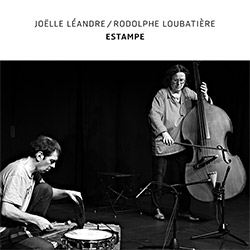
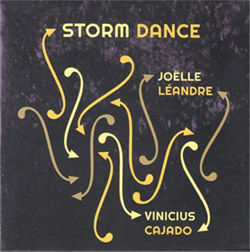
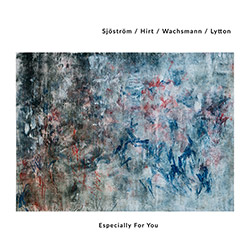
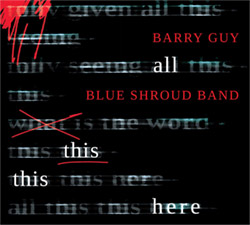
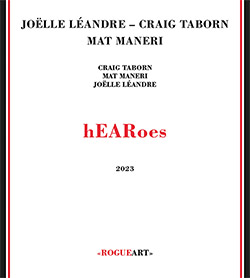
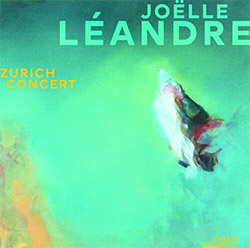
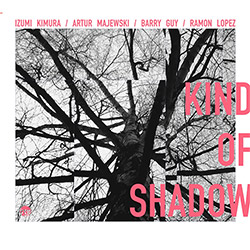




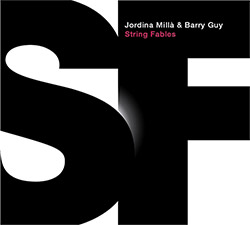
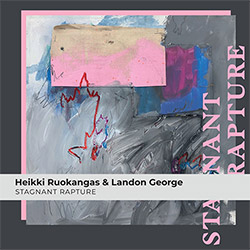
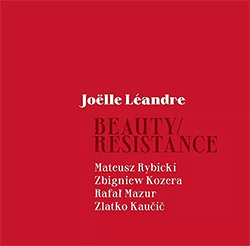
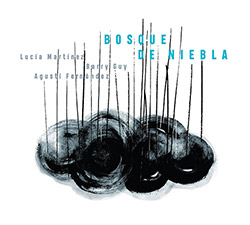

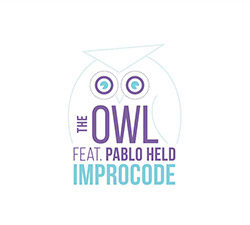
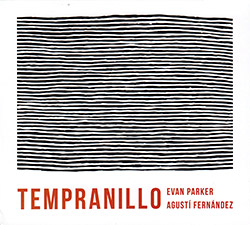
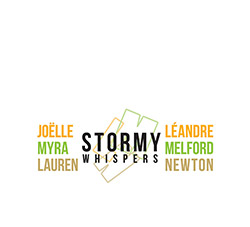

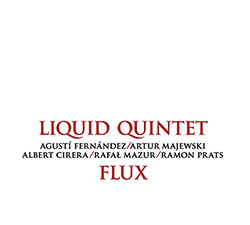

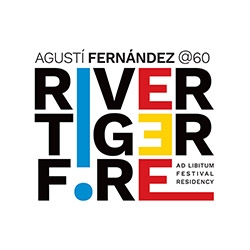
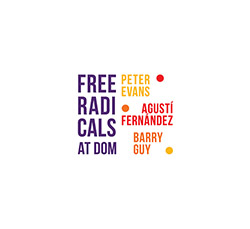





![Warren, Kenny (Warren / Hoffman / Ellman): Sweet World [VINYL]](https://www.teuthida.com/productImages/misc4/35451.jpg)


![Blake, Ran / Dave Knife Fabris: Live Amsterdam 2006, First Visit [CD + POSTCARDS]](https://www.teuthida.com/productImages/misc4/35275.jpg)
![Sanna, Claudio: Compositori Sardi Contemporanei II [2 CDs]](https://www.teuthida.com/productImages/misc4/35317.jpg)














![Musicworks Magazine: #149 Fall 2024 [MAGAZINE + CD]](https://www.teuthida.com/productImages/misc4/35470.jpg)

![Nevai, Nandor: <<The PRICE of FRONTIER>> Book 1: FULK [BOOK + 4 CDs]](https://www.teuthida.com/productImages/misc4/35464.jpg)
![Nevai, Nandor: <<The PRICE of FRONTIER>> Book 2: MARTIAL [BOOK + 4 CDs]](https://www.teuthida.com/productImages/misc4/35465.jpg)
![Nevai, Nandor: <<The PRICE of FRONTIER>> Book 3: JASSOM [BOOK + 4 CDs]](https://www.teuthida.com/productImages/misc4/35466.jpg)
![Nevai, Nandor: <<The PRICE of FRONTIER>> Book 4: HARD-WON [BOOK + 4 CDs]](https://www.teuthida.com/productImages/misc4/35467.jpg)



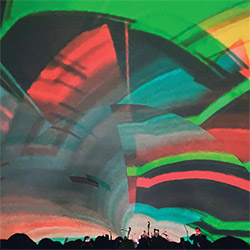
![Mazurek, Rob & Exploding Star Orchestra: Live at Adler Planetarium [VINYL]](https://www.teuthida.com/productImages/misc4/35233.jpg)
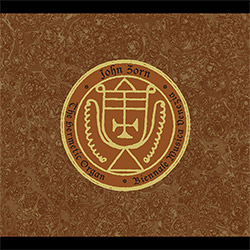
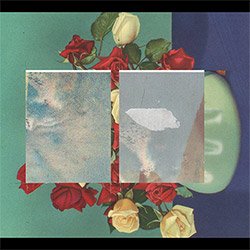
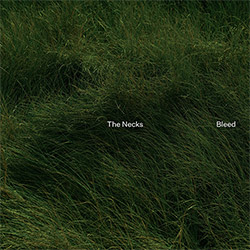
![Necks, The: Bleed [VINYL BLACK]](https://www.teuthida.com/productImages/misc4/35250.jpg)
![Necks, The: Bleed [VINYL GREEN + DOWNLOAD]](https://www.teuthida.com/productImages/misc4/35251.jpg)
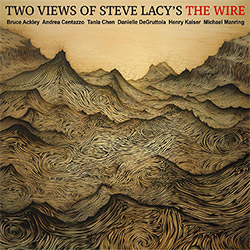

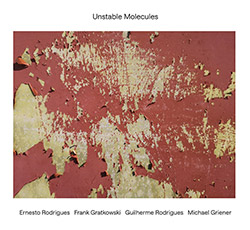

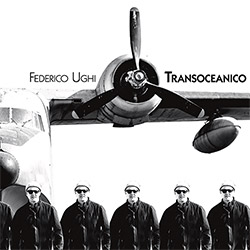
![Attias, Michael (Attias / Leibson / Pavolka / Ferber / Hoffman): Quartet Music Vol. I: LuMiSong [VINYL]](https://www.teuthida.com/productImages/misc4/34878.jpg)
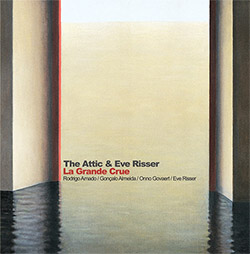
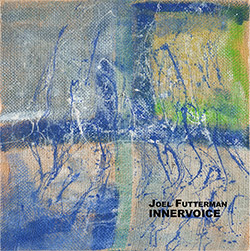



![DNS: Taking Big Bites Of The Khandas Three Cafes Deep [2 CDs]](https://www.teuthida.com/productImages/misc4/35334.jpg)




![Cleaver, Gerald: The Process [VINYL]](https://www.teuthida.com/productImages/misc4/34966.jpg)




![Alva Noto: HYbr:ID II [VINYL 2 LPs]](https://www.teuthida.com/productImages/misc4/35201.jpg)

![Baron, Derek / Luke Martin: Distinct and Concealed [CASSETTE + DOWNLOAD]](https://www.teuthida.com/productImages/misc4/35079.jpg)

![Lyle, Erica Dawn : Colonial Motels [CASSETTE + DOWNLOAD]](https://www.teuthida.com/productImages/misc4/35080.jpg)







![Alva Noto: HYbr:ID III [VINYL 2 LPs]](https://www.teuthida.com/productImages/misc4/35011.jpg)
![Kubisch, Christina / Trondheim Voices: Stromsanger 2022 For Six Voices And Electromagnetic Waves [VINYL]](https://www.teuthida.com/productImages/misc4/34628.jpg)
![Ristic, Manja / Joana Guerra / Veronica Cerrotta: Slani pejzazi [CASSETTE + DOWNLOAD]](https://www.teuthida.com/productImages/misc4/34928.jpg)
![Euro Herc: Segnali [CASSETTE + DOWNLOAD]](https://www.teuthida.com/productImages/misc4/34929.jpg)







![Zurria, Manuel: Fame di Vento [3 CDs]](https://www.teuthida.com/productImages/misc4/35167.jpg)

![Granberg, Magnus / Nattens Inbrott / Skogen: Holde Traume, Kehret Wieder! [2 CDs]](https://www.teuthida.com/productImages/misc4/35038.jpg)
![Frey, Jurg: Outermost Melodie [2 CDs]](https://www.teuthida.com/productImages/misc4/35039.jpg)

![Pavone, Jessica: Reverse Bloom [VINYL]](https://www.teuthida.com/productImages/misc4/34895.jpg)




![Modney (Modney / Wooley / Gentile / Roberts / Pluta / Symthe / ...): Ascending Primes [2 CDs]](https://www.teuthida.com/productImages/misc4/34852.jpg)






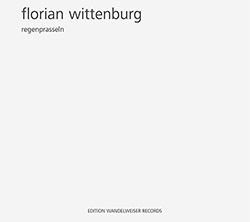

![Kirschner, Kenneth / Joseph Branciforte: From the Machine: Volume 1 [VINYL]](https://www.teuthida.com/productImages/misc4/30767.jpg)

![Elephant9 with Terje Rypdal: Catching Fire [VINYL 2 LPs]](https://www.teuthida.com/productImages/misc4/35355.jpg)
![Deerlady (Obomsawin, Mali / Magdalena Abrego): Greatest Hits [VINYL]](https://www.teuthida.com/productImages/misc4/34876.jpg)




![Haino, Keiji: Black Blues [2 CDs]](https://www.teuthida.com/productImages/misc4/35109.jpg)



![Surplus 1980: Illusion of Consistency [CD]](https://www.teuthida.com/productImages/misc4/35069.jpg)
![Staiano, Moe: Away Towards the Light [VINYL + DOWNLOAD]](https://www.teuthida.com/productImages/misc4/35037.jpg)




![Caveira (Gomes / Sousa / Abras / Ferrandini): Ficar Vivo [VINYL]](https://www.teuthida.com/productImages/misc4/34643.jpg)
![Gregg, J. J. / David Van Auken: Lunar Prairie [CD w/ DOWNLOAD]](https://www.teuthida.com/productImages/misc4/34611.jpg)

![Coultrain: Mundus [VINYL]](https://www.teuthida.com/productImages/misc4/32439.jpg)
![Mattin: Songbook #6 [VINYL]](https://www.teuthida.com/productImages/misc4/27317.jpg)
![Punkappella: Wake Up [7-inch VINYL]](https://www.teuthida.com/productImages/misc4/17519.jpg)
![Residents, The: WARNING: UNiNC.: Live And Experimental Recordings 1971-1972 [VINYL 2 LPs]](https://www.teuthida.com/productImages/misc4/31521.jpg)
![Coultrain: Phantasmagoria [VINYL]](https://www.teuthida.com/productImages/misc4/30142.jpg)
![Lennon, Sean Ono: Asterisms [VINYL]](https://www.teuthida.com/productImages/misc4/34517.jpg)

![Rotem Geffen: The Night Is The Night [VINYL]](https://www.teuthida.com/productImages/misc4/34631.jpg)
![Coley, Byron: Dating Tips for Touring Bands [VINYL]](https://www.teuthida.com/productImages/misc4/17906.jpg)

![Lost Kisses: My Life is Sad & Funny [DVD]](https://www.teuthida.com/productImages/misc4/lostKissesDVD.jpg)